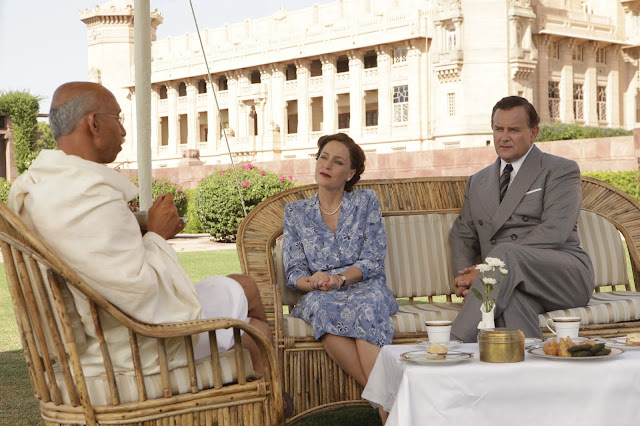Viceroy's House: Film Review
Cast: Hugh Bonneville, Gillian Anderson, Michael Gambon, Om Puri, Huma Qureshi, Manish Dayal
Director: Gurinder Chadha
Meshing Indian Summers with Upstairs Downstairs and lathering the whole thing up in a soapy vibe, Bend It Like Beckham's Gurinder Chadha chooses to recount the tale of India's partition with which she shares a very personal connection.
Set in 1947, and with British colonial rule in India coming to an end, Lord Mountbatten (the ever genial Hugh Bonneville) moves into the Viceroy's House in Delhi. With the responsibility of being both the last Viceroy and ensuring a successful transition, Mountbatten's got more than a little on his plate to deal with - and that doesn't even factor in the resentment harboured within India over what Britain did for years.
Added into this already politically potent mix is the inter-religious burgeoning relationship between new Hindu servant Jeet (Dayal) and Muslim Aalia (Qureshi). Threatened by arranged marriage and religious ideological clashes, the pair have to negotiate the traditions of the past and the uncertainty of the future.
Viceroy's House is a curious beast, and with its romance, a not entirely successfully executed one.
By casting the dramatic net far and wide to incorporate the political turmoil, Chadha loses sight of the romance elements that would have played more potently to audiences. And ironically, the more powerful political story is intriguing, but feels sidelined by an overlay of themes.
Long scenes of discussions about India's future certainly do a lot to set the scene and impart the reality of the fractious nature of negotiations, but add little to the film other than a sense of historical importance and really fail to add the spice you'd expect.
Equally and disappointingly unsuccessful is the romance which seems to suffer from a choppy editing technique that forces the pair together and apart quicker than gives you chance to root for them. It's a mistake to have an unfocussed approach to all the elements of the story, particularly as the tensions escalate and the audience is asked to have an emotional stake to what plays out.
Far more successful is Chadha's setting of the social scene and the aftermath of the Partition, and it's perhaps here that the film would have carried more heft and drama in the unfolding climate of chaos and recrimination, as the downstairs dissent grows. Complete with some excellent recreations of pomp and ceremony of the time and hints of Lady Mountbatten's desire (a wonderfully clipped and precise turn from an on-form Anderson) to overturn some of what Britain did wrong, there are elements within that could have helped Viceroy's House soar as a scathing condemnation of events and an incisive slice of political history.
Instead what Viceroy's House offers is a tonal mish-mash of shoehorned culture clash, doomed romance, redemption and a predictable turn of events that falls flat and frustratingly fails to ignite any real passions within.






%20&%20Edith%20Poor%20(Lizzie%20Moyle)_%C2%A9BBCS%20&%20Bunya%20Entertainment.jpg)
No comments:
Post a Comment